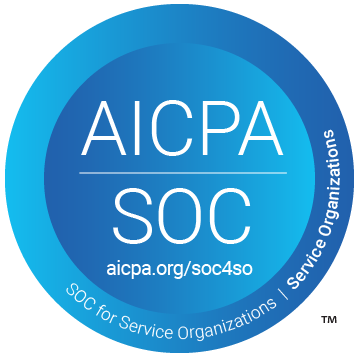- Solutions
-
Products
-
Resources
Sales Automation Tools | Cirrus Insight by Kristi Campbell View all Blog Posts >Get the App, Get the Sidebar, & Get Your Trial Going HereUnleash limitless growth opportunities by partnering with Cirrus Insight.
- Pricing
Filter By:
- All topics
- Sales Productivity
- Sales Intelligence
- Salesforce
- Sales Strategy
- Sales Prospecting
- Book More Meetings
- Best of
- Company News
- Product
- Sales Leadership
- CRM Admininstration
- Sales Metrics
- Supercharge Sales Activity
- Team Scheduling
- Admin
- serious insights
- Prospect Smarter
- Sales Activity Data
- Sales Forecasting
- Scheduling Solutions
- Prospect Faster
- Auto-Sync Everything To Your CRM
- Chrome
- Comparison
- Financial Services
- For Admins
- Getting Started
- IT & Security
- outlook
Subscribe to our Blog for the Latest Insights
Join our blog community to stay informed and receive fresh content and actionable tips directly in your inbox.
Stop Giving Millennials "Sales Advice"
Years ago, I was lost driving in Los Angeles California. That's not that hard to do - the first time I ever landed at LAX I thought to myself "How am I ever going to find my way around this place? I see no man made or geographic markers! Where does LA end and other cities/towns begin? How will Lynda Carter ever find me?"
This was, of course, years before each of us had our own personal navigation Sherpa in our pocket, so I was left with paper maps. Yippee for the old days! So after about an hour of trying to get from point A to point B, making wrong turn after wrong turn and missing exit after exit, I was busy calculating the speed and degree of angle necessary to hit an overpass for maximum effect and my car-mate said, "Why don't you just ask somebody?"Under stress, exhausted and worried why my US Army-honed sense of direction wasn't operational, I scanned out the windshield and looked for a person to ask.
Finding a portly, well-dressed gentleman standing on a corner, I pulled up, rolled down the window and began to ask how to get to where I needed to go.Now, as someone who spoke to portly, well-dressed middle-aged men for a living, trying to sell them "stuff" and "things", I knew what I wanted to communicate and I made sure to speak clearly and concisely. I used humor to engage this man to entice him to help me. I made my ask "So how to I get to Burbank from here?" He smiled, laughed a little and said "я не говорить по-английски" (later I realized this was Russian for: I don't speak English") Ha. Ha. Ha. Of all the people in LA to ask directions - I ask someone who doesn't speak English. Since I'm writing this, I obviously eventually found my way to Burbank. But aside from being a story I'm reminded of....often....what does this story have to do with why we should stop giving millennials sales advice?
Well I've been reading a lot of "sales expert" advice recently. Much of it is from people with snow on the roof (like me) and directed to millennial salespeople. A lot of it has to do with how to "sell" in 2016 and beyond: how millennial salespeople have to cast off the fallacy of "social selling" and get back to "basics"; how it's all a still numbers game after all; how the phone still works and how salespeople who don't embrace the tried and true "natural laws" of sales are lazy and whiney babies.
You can spot this advice from a mile away. It's braggadocios - "I just made six cold calls yesterday and got two call backs!"; it's either free of data (i.e., statistics or studies) or has a few made up ones in it - "for every ten salespeople that don't cold call there's one that's driving a Ferrari who does!"; and a lot of it is just plain MEAN - "this lazy snowflake generation doesn't want to work - they're used to having everything handed to them."
And it's all wrong. It's the wrong message, delivered to the wrong audience by the wrong people. It's worse than speaking English to someone who only speaks Russian. It's speaking gibberish.
Sadly, much of the content about "millennials" posted by "business leaders" on LinkedIn is basically the blogging equivalent of an old, white-haired man standing on his front porch, shaking his first at those crazy kids who walk on his grass, playing their Rock and Roll music on their iTooms or whatever.
Now mind you, if you take offense to this, understand that not so long ago, I was one of those fist-shakers. I would manage my sales teams with all the authority and self-confidence years of Sandler, SPIN and Solution Selling gave me. Having been a quota buster, I would push the phone, push email prospecting, push meetings with DMs with clear "move forwards"...push push push. And those sales reps that said "it's not working?" Well, I thought their failure was either a question of "skill" or "will" - if it was skill, I tried retraining. If it was "will"....well, there's the door.
But I don't believe that anymore. I don't manage that way anymore. Not because I saw the light and became a nice person - that'll be the day - it's simply because it doesn't work anymore. Because the sales language I was proficient in isn't the language my target customers are speaking today.
There are 54 million millennials in the American workforce today, Many of them have been in business now for 8 to 10 years. They aren't entry level anymore- many are first and second level managers responsible for managing FTEs and budget. Some are executives, responsible for multi-million dollar companies.
In fact, by 2025 millennials will encompass 75% of the working population. That's in eight years.
Millennials are people our companies are marketing and selling TO. More and more, decisions about B2B purchases will be made by millennials. And they make decisions differently and for different reasons.
But don't take my word for it - there's data:
- 73% of millennials are involved in product or service purchase decision-making at their companies - with 1/3rd being the "sole decision maker" in their department
- 56% indicate that digital channels such as search engines, vendor websites and social media are the most important channels for researching new products and services
- 80% indicate that social, environmental, or philanthropic efforts of companies are important to their purchase decisions - with 91% saying they would switch brands to one associated with a cause they cared about.
- 62% say that if a brand engages with them on social networks, they are more likely to become a loyal customer.
- Only 8% of millennials report making/taking 5 phone calls a day. The preferred method of communication via phone is Text.
Millennials have unique beliefs and expectations as B2B purchasing decision-makers. Technology and the world they grew up in makes them different from previous generations of B2B buyers. IMHO, a lot of time is being wasted trying to speak English, loudly and slowly, to people who speak Russian. As sales leaders, isn't our job - first and foremost - to sell "stuff and things" to prospects?
More and more, those prospects are millennials - the very same people we employ, who will take their lunch break today from their inside sales job and engage in 12 digital conversations (4 text, 3 over Facebook, and 2 on twitter, 2 on Instagram and 1 on an app that was just released this morning that you and I know nothing about), purchase a couple hundred dollars worth of products, plan a vacation, (and probably research a few of more forwarding thinking of our competitors and apply for sales jobs there) all without speaking to a human being.
Now, call up that person after reading their LinkedIn profile for three minutes and SPIN sell them $200k of widgets. I'll wait here.
Why? Because that's who's buying our widgets. Now and in the future.
It's time to stop giving advice to millennials on HOW to sell and instead start taking advice from them on HOW they like to BUY.
This is just an opinion and as always, the market will decide. I'm eager to hear what people think. Let me know - comment back here or tweet me @realsalesadvice.





